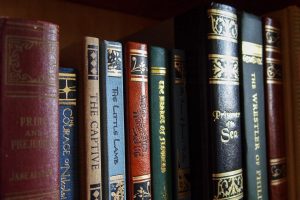SAT Reading Comprehension
https://www.powerscore.com/sat/help/reading_comp_practice
General
These magazines cover multiple passage types on the SAT.
Atlantic Weekly
Harper’s Magazine
National Geographic
The New York Times
The New Yorker
Time
Wall Street Journal
Natural Sciences
Natural science articles use scientific evidence to explain a process or phenomenon. Possible topics include the sonar perception of fruit bats or the explosive ingredients in gunpowder.
Humanities
Humanities passages cover cultural perspectives on art, literature, and philosophy. Topics might include the need for restoration of Victorian-era homes or a comparison of an author’s first and last novels.
Archipelago
Art Forum
Smithsonian Magazine
American Journal of Archaeology
Arts Journal
Literature
Literature passages are excepts from novels or short stories, usually published in the last century, but occasionally from the late 1800’s. These passages are typically the easiest type on the SAT. The first four websites below contain short stories. The latter group offers complete novels available for download from the listed author. The SAT often uses the first 80 to 90 lines of a novel for a literature passage, so we recommend practicing with these well-known authors.
Novels:
Willa CatherJoseph Conrad
Theodore Dreiser
F. Scott Fitzgerald
E.M. Forster
D.H. Lawrence
Edith Wharton
https://mekreview.com/sat-recommended-reading-list/
Fiction/Narrative Prose
Books
- Pride and Prejudice by Jane Austen (or any of Austen’s novels!)
- Wuthering Heights by Emily Bronte
- Native Son by Richard Wright
- The Adventures of Sherlock Holmes by Arthur Conan Doyle
- The Pearl by John Steinbeck (or any of Steinbeck’s novels!)
- The Joy Luck Club by Amy Tan
- Dracula by Bram Stoker
- Anna Karenina by Leo Tolstoy
- Kite Runner by Khaled Hosseini
- Never Let Me Go by Kazuo Ishiguro (or Remains of the Day)
- House of Mirth by Edith Wharton
Short Stories or Novellas
- Heart of Darkness by Joseph Conrad
- The Awakening by Kate Chopin
- “The Yellow Wallpaper” by Charlotte Perkins Gilman
- “The Dead” by James Joyce
- “A Rose for Emily” by William Faulkner
- “Interpreter of Maladies” by Jhumpa Lahiri
- “Winter Dreams” by F. Scott Fitzgerald
- “To Build a Fire” by Jack London
Natural Science
Books
- The Origin of Species by Charles Darwin
- Hyperspace by Michio Kaku
- Gravity in Reverse by Neil DeGrasse Tyson
- A Brief History of Time by Stephen Hawking
- Packing for Mars: The Curious Science of Life in the Void by Mary Roach
- The Man Who Mistook his Wife for a Hat and Other Clinical Trials by Oliver Sacks
- The Immortal Life of Henrietta Lacks by Rebecca Skloot
- In the Shadow of Man by Jane Goodall
- Storm in a Teacup: The Physics of Everyday Life by Helen Czerski
- The Story of Science by Joy Hakim
- Stuff Matters: Exploring the Marvelous Materials That Shape Our Man-Made World by Mark Miodownik
- This is Your Brain on Music: The Science of Human Obsession by Daniel J. Levitin
Magazines or Scientific Journals
- National Geographic
- Scientific American
- Smithsonian
- Science Magazine
Social Science
Books
- The Tipping Point by Malcolm Gladwell
- The Signal and the Noise: Why So Many Predictions Fail—But Some Don’t by Nate Silver
- Fast Food Nation: The Dark Side of the All-American Meal by Eric Schlosser
- The Omnivore’s Dilemma: The Secrets Behind What You Eat by Michael Pollan
- Freakonomics by Steven Levitt and Stephen Dubner
- Naked Economics: Undressing the Dismal Science by Charles Wheelan
- The Paradox of Choice: Why More is Less by Barry Schwartz
- The New Jim Crow: Mass Incarceration in the Age of Colorblindness by Michelle Alexander
- One Billion Americans: The Case for Thinking Bigger by Matthew Yglesias
- This Changes Everything: Capitalism vs. the Climate
Magazines or Academic Journals
- The Atlantic
- The Economist
- Time Magazine
- The New Yorker
Sun. |
Mon. |
Tues. |
Wed. |
Thurs. |
Fri. |
Sat. |
|
Arts & culture |
International news |
Business |
National news |
Science |
Local news |
Whatever you like! |
https://test-preparation.ca/reading-comprehension-from-fiction/




0 Comments:
Post a Comment
<< Home